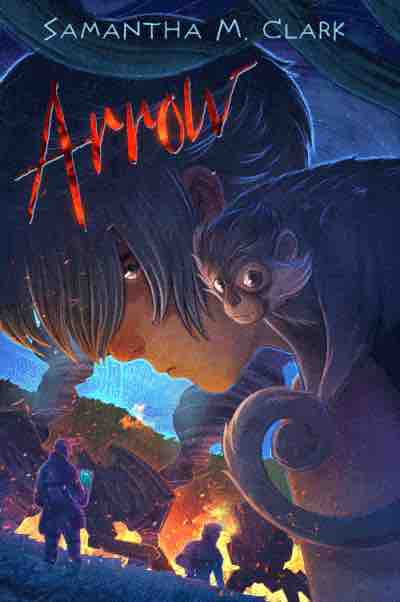
From deep in an enchanted forest, a tree emerges as the narrator of this delightful new novel by Samantha M. Clark, Arrow, just out from Paula Wiseman Books, an imprint of Simon & Schuster.
More about this story in a minute because the author is here today to tell us about her writing process. But first, the giveaway! Hop to the end of this post to enter (leave a comment, email me, or tag me in a tweet with a link to this interview), then come back to hear a bit about Sam’s process in writing this wonderful story. Deadline to enter the book giveaway: Tuesday, August 17, 2021, 11:59 PM.
A. B. Westrick: Sam, welcome to my blog!
Samantha M. Clark: Great to be here!
ABW: Let’s start with the opening of Arrow. On the first page we encounter a boy and wonderful lines such as, “His hand caught a branch, his elbow hooked a tree limb. His breath shallowed.” Then all of a sudden, the story shifts to first person: “Sit down,” I told him… “Don’t go… It’s too dangerous.”
Ooooh! I found the shift intriguing. Soon I came to understand that this “I” voice—the narrator—was the “Guardian Tree” of the forest. Lovely. How did you decide to tell a story from the point of view of a tree?
SMC: I hadn’t originally planned to tell the story from the viewpoint of the Guardian Tree, but when I sat down to start writing this book, the first words that came to me were these:
“My end began the day the sky turned red. We shook. We trembled. We started to bleed. But this would be only the start. A small taste of the battle to come. Our quiet world had been changing, and I could only hope some would survive.”
These are still the first words in the book. I didn’t realize this was the tree’s voice at first, but I knew it wasn’t the boy’s. I tried switching to the boy’s voice after these words, but it didn’t work.
When I got further into the story, though, I understood why the Guardian Tree is in fact the right narrator for this story. While Arrow learns a lot and has high stakes, the Guardian Tree has everything at stake but is also at the mercy of everyone around her. Seeing this story through her eyes, gave me a better insight into not just the forest, but also the humans as well.
ABW: Oh, that’s so interesting. Yes, the Guardian Tree makes the perfect narrator.
Now, early-on we learn that one of the boy’s arms ends not in a hand but in the shape of an arrow, hence his name and the title. The boy is the only human in this forest, and his suspicion that he was abandoned because of his limb made me hurt for him. Can you tell me a bit about crafting this element of the story? Do you have first-hand knowledge of limb differences, or did you have to do research to make this part of the story authentic?
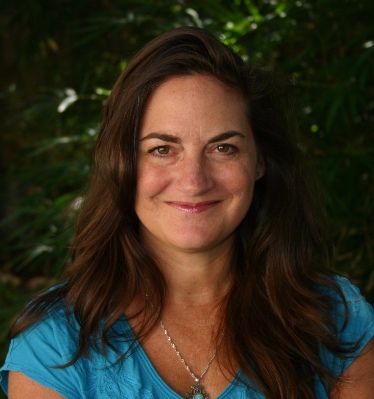
SMC: This was another case of me honoring my muse. The first spark of Arrow came to me as an image of a boy with one hand who lived in a tree, and while I wanted to follow the original inspiration, I also knew I had a great responsibility to get it right.
One thing I knew immediately was that Arrow’s limb difference wouldn’t make him any less capable than any other character. I don’t have a disability, but I have known people who do. Disabilities don’t necessarily prevent a person from doing anything; they just mean the person has to learn to do the actions differently. I wanted to make sure that this was perfectly clear with Arrow.
But I also wanted to make sure the story provided an accurate representation for people with a limb difference. I started writing by trying actions one-handed myself with the full knowledge that it would only be a starting point for the character. Later I looked for expert readers who had the same limb difference as Arrow, so they would have as close to his lived experience as possible (minus the part about growing up the only human in a magical hidden rainforest, of course 😉 ). I connected with Nicole Kelly and Sarah Tuberty, two amazing women who run the wonderful Disarming Disability podcast.
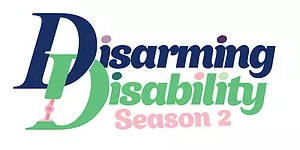
Not only did they give me notes so that I could make sure that Arrow was written responsibly, they even made a mini podcast just for me as they discussed the book. Listening to that is one of my favorite moments of writing this book. In fact, Nicole and Sarah coined the phrase “arrow arm” to describe Arrow’s limb difference arm in the book. I love it.
ABW: Brilliant. This says so much about the value of experts and sensitivity readers!
SMC: Absolutely! I also had two expert readers who helped with the rainforest science and the representation of the indigenous people, called “Forest Dwellers” by the Guardian Tree. They all helped the story get better.
ABW: That’s great to hear. Writing a novel is such a process—so many moving parts!
Okay, new topic: one of Arrow’s challenges is to figure out who he can trust and who he can’t. He comes to learn how complicated people are—how not all are bad, and how humans can change. These are wonderful themes. When you first sat down to write this novel, did you know you’d be weaving these themes into the story, or did they emerge during your writing process rather than before?
SMC: I sort of did. I don’t usually have a theme in mind when I begin a story, but while I was writing Arrow, the world was in an upheaval (and it still is) and that was definitely on my mind. As I explored the humans who would ultimately find and infiltrate the hidden rainforest, I was thinking about our current society. Some social media has done more to separate people than to bring us together. People take 120 characters to be gospel when most of us, including myself, find it hard to express a full thought in anything less than a 1,000 words. This has made us reactionary, jumping to conclusions that are often not based in reality. And the worst part is, we act on these false conclusions before we think them through.
Humans are hard-wired to judge and categorize, and that’s not necessarily a bad thing. But while those evolutionary instincts helped us know which kind of animal was going to eat us and which plant was better for food, we have turned them into ways to deny basic rights to huge segments of the world’s population. Some of this is out of pure evil and greed, but a lot of it is out of fear.
ABW: You are so right, and I think kids get this. I love that your book will help kids talk about issues like greed, evil, and fear.
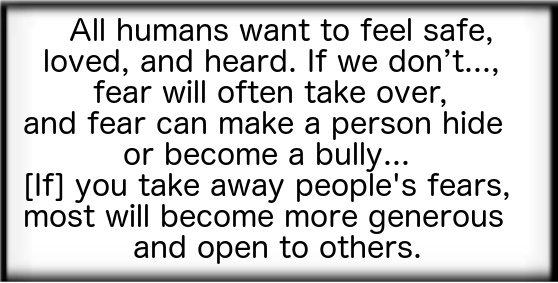
SMC: I hope so, too! As a child, by the time I was 12, I had lived in four different countries, and if there’s one thing I learned, it’s that deep down, humans are all the same, no matter where in the world we live, or our gender, race, religion, etc. All humans want to feel safe, loved, and heard. If we don’t have those things, fear will often take over, and fear can make a person hide or become a bully. There was a study that showed how if you take away people’s fears, most will become more generous and open to others.
So yes, it’s easy for us to judge another person over one action—especially in today’s world—but each and every one of us is way more complicated than one action. And one small change in circumstance can easily turn a person into someone worse, or someone better. I definitely wanted to explore this with Arrow, and I hope readers will not be too quick to judge those around them after they read the book.
-Jump to the giveaway details-
ABW: Well said. And what good goals for your readers!
Eventually, Arrow meets children in search of food and shelter, reminding me of the situation at our southern border and of immigrants in general, all around the world. Experts are telling us that as climate change intensifies, we can expect more people to migrate in search of better conditions. What modern-day circumstances were most on your mind while you were writing Arrow’s story?
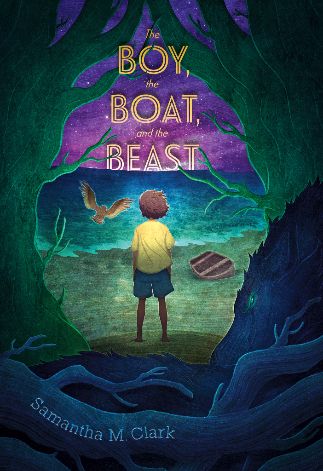
SMC: Climate change was definitely on my mind while I was writing Arrow. When the boy with one hand in a tree first appeared in my mind, I immediately remembered when I went into the Amazon when I was 10, and that made me think of the importance of the Amazon and other rainforests worldwide to our planet’s climate.
Plus, the trees near my house me were being razed to put up more apartments and gas stations. My house now has 8 gas stations within less than a mile. Now, I’m not trying to say that we should curtail building or progress, but that kind of building is unnecessary and irresponsible. It is possible to have our cake and eat it too, with limits, when it comes to development. Having mature trees gives value to property, so it’s better to develop land while trying to preserve as much of the native flora as possible.
In 2020 when Arrow was still in production, climate change took a dire turn. The year was the hottest on record. The Atlantic hurricane season was the most active on record. Heat waves and wildfires also broke records. And for anyone who only thinks in dollars, as an article in Science News reported, “As of early October [2020], the United States alone had weathered at least 16 climate- or weather-related disasters each costing more than $1 billion. The price tags of the late-season hurricanes Delta, Zeta and Eta could push the final 2020 tally of such expensive disasters even higher, setting a new record.”
By the time these records were being reported, Arrow‘s text was done, but I felt the need for this book even more than when I had started to write it. Having flourishing forests is only one part of what we need to combat climate change, but it’s something that every person on the planet can be a part of. We don’t all have the resources to buy electric cars or be part of developing new energy sources, but we can all work together to protect, care for and grow native trees in our own areas.
ABW: I love that you linked your Arrow pre-orders to the One Tree Planted initiative.
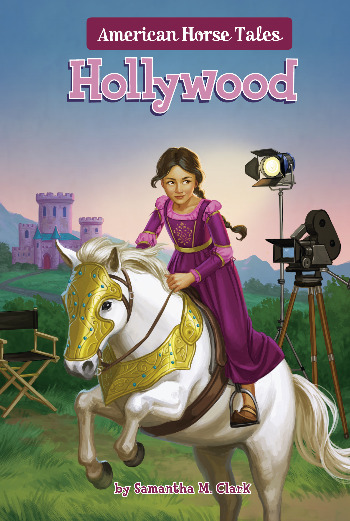
SMC: Thank you. I love the work that they’re doing.
And as for migration, what you mentioned is absolutely true. Humans have migrated around the globe in search of food, safety, and prosperity throughout history. When I was thinking about the type of fictional world I was creating outside of the rainforest—a dry, arid world that could become our future if deforestation and climate change continued—I thought about the people who would live there (my Mad Max world, as I called it) and what they would want and need. I also thought of what they’d do to get it. All of this became a big part of the book.
ABW: How long did it take you to write Arrow? Are you a plotter or a seat-of-your-pantser?
SMC: I wrote Arrow in about eight months, but there was a big gap in that writing time. I had started it in 2017 before my novel The Boy, The Boat, and The Beast came out, but I had to put Arrow aside when Beast was released to concentrate on the numerous events I was doing at the time to promote that book. I picked Arrow back up as soon as I could. I quickly realized, though, that Arrow was going to be a challenging story to tell.
When I first started writing novels, I was a pantser, but the more I wrote, the more my process moved to a hybrid pantser/plotter style. Arrow had many threads to weave into the main story and keep track of, and I found that I needed structural help. With encouragement from a fellow writer, I tried the Save the Cat plotting method, and it helped me get organized. Arrow still had many, many, MANY revisions to go through to get from first draft to published book, but having that framework proved to be an essential foundation for the story.
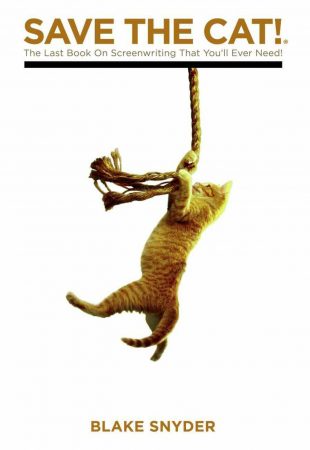
ABW: I’ve also used the Save the Cat plotting technique. Good stuff!
Finally, could you share a bit about how you get your writing done? Are you an early-bird or do you burn the midnight oil? Do you have rituals that help you focus? And what are you working on now?
SMC: I try to reserve my mornings for writing. I like to get started as early as possible, but often things need my attention. When I can, I turn off my email at night and don’t allow myself to look at it until noon the next day, so I can focus on whatever story I’m working on first thing.
One thing that has helped me enormously during the pandemic is a Zoom writing group I started after being inspired by another writing friend. The group now has about 15 authors who login whenever they can. We share stories and encouragement for a few minutes, then all mute and write together—each in a different part of the country—for a couple hours, then check in, log off and go about the rest of our day.
ABW: I attend a Zoom writing group, too! I agree that it’s been really helpful, surprisingly so.
SMC: Yes, having this group has helped me stay focused and on track despite lots of other distractions. We’re talking about keeping it going post-COVID. If any other writers are having trouble focusing, I encourage them to start a similar group.
As for what I’m working on, I’ve always got a number of projects on my desk. I’m working on two middle-grade novels that I’m co-authoring and so excited about. I’m also working on two new middle-grade novels of my own, and my first picture book, which I’m also co-authoring. These are all works in progress in various stages of completion.
And I’m really thrilled that I’ll have my first chapter book series coming out. Gemstone Dragons is about adorable dragons with special powers who have adventures that are always made better by their friendships. The first two books, Opal’s Time to Shine and Ruby’s Fiery Mishap, will be published by Bloomsbury next year and are being illustrated by the brilliant Janelle Anderson. I can’t wait for you to see them.
ABW: Sweet. Sounds like we have some real gems to look forward to. Thank you so much, Sam, for taking the time to do this interview!
SMC: Thanks for inviting me!
Readers who enjoyed this interview can find more about Samantha M. Clark through her social media pages: website, Twitter, Instagram, Pinterest, and Facebook.

If you’d like your own copy of Arrow to keep and/or give away to an avid reader or your local school library, either
- leave a comment below, or
- tweet (or retweet) about this giveaway (tag me @abwestrick so I’m sure to see your tweet), or
- email me at abwestrick (at) gmail (dot) com with the subject line, BOOK GIVEAWAY.
Here’s a sample tweet:
I enjoyed reading #author @abwestrick’s in-depth #interview with @samclarkwrites about #writing ARROW. Sign up for the #BookGiveaway by 8/17/21. https://bit.ly/SamClarkInterview
Comments below need not be long!
The deadline to enter is Tuesday, August 17, 2021, at 11:59 PM. On Wednesday, August 18, I’ll put all the entries in a list and use a handy-dandy random number generator to select a winner. One lucky reader will receive a copy of Samantha M. Clark’s Arrow, and I’ll post the winner’s first name below.
Thank you for stopping by. Good luck!
The giveaway winner is Chris S. Congratulations! I’ll DM you privately, and meanwhile, thank you to all who tweeted, posted comments, and emailed me. Happy reading, everyone!

I posted a tweet. My son would love this book!
@MsCarolsueA
I love hearing that your son would love this book. I think lots of young readers will love it!
I’m going to love reading this book! Thank you for the interview and chance to win a copy!
What a great cover!
The comment about fears informing all too much of what is going on in the world is definitely something you can see in news stories *every* *single* *day*.
Thank you, Danielle and John, for your comments! Between you and the folks who’ve tweeted about the giveaway, I’ll be choosing a winner this coming Wednesday morning.
I agree with you, John — great cover. And yes, there’s way too much FEAR in our news these days!
Thanks for tagging me, and for the chance! I can’t wait to read Sam’s book! 😊
I’ve loved “meeting” and tagging educators through Twitter! I wish my feed were 100% reader, writers, books, and inspiration for the journey.